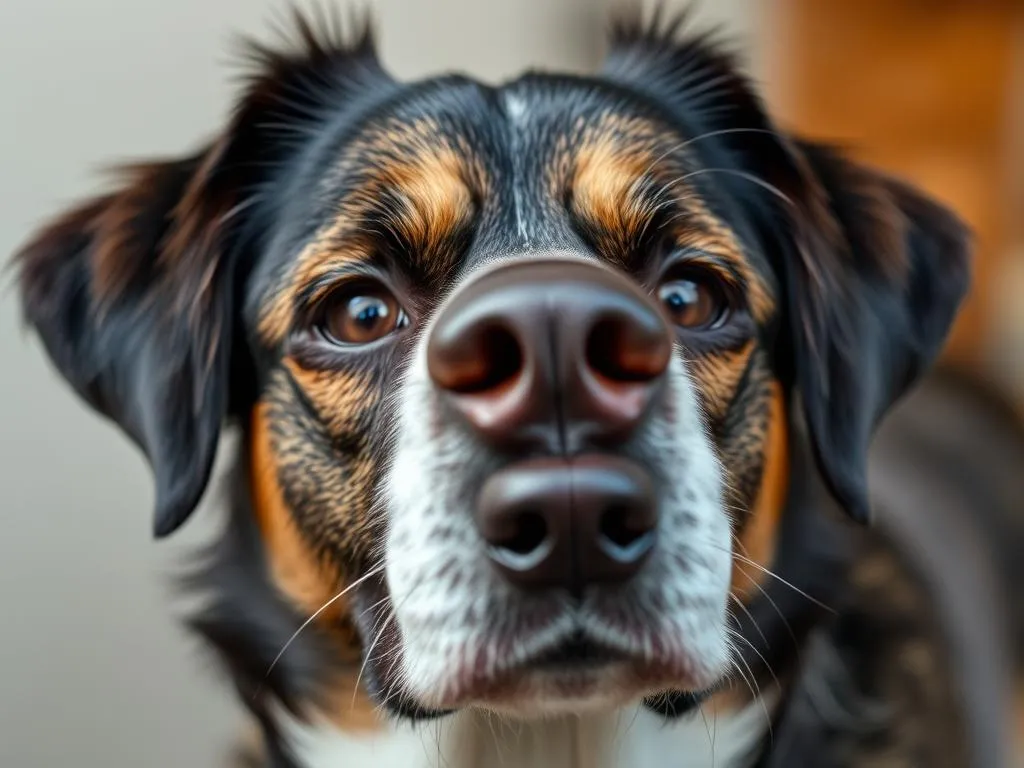
Rhinitis and sinusitis are two common conditions that can affect our canine companions, often leading to discomfort and potential health issues. Understanding these conditions is crucial for dog owners, as recognizing the symptoms early on can lead to timely veterinary intervention. In this article, we will delve into the intricacies of rhinitis and sinusitis in dogs vet answer, providing comprehensive information to help you better care for your furry friend.
Understanding Rhinitis and Sinusitis
Definition
Rhinitis is characterized by inflammation of the nasal mucosa, which can cause symptoms such as nasal discharge, sneezing, and congestion. This condition can be acute or chronic, depending on its duration and underlying causes.
On the other hand, sinusitis refers to the inflammation of the sinuses, the air-filled spaces behind the facial bones. This condition often occurs as a secondary complication of rhinitis, leading to a more severe set of symptoms, including facial pain and pressure.
The key difference between the two lies in the location of the inflammation—rhinitis affects the nasal passages, while sinusitis impacts the sinuses. Understanding this distinction is fundamental for proper diagnosis and treatment.
Causes
Several factors can contribute to the development of rhinitis and sinusitis in dogs:
-
Infectious Causes: Bacterial, viral, or fungal infections can instigate these conditions. For instance, kennel cough or canine influenza may lead to rhinitis, which can subsequently result in sinusitis.
-
Allergic Reactions: Allergens such as pollen, dust, or mold can trigger inflammatory responses, leading to rhinitis and sometimes sinusitis.
-
Environmental Factors: Exposure to pollutants, smoke, and irritants can also contribute to the onset of these conditions.
-
Anatomical Issues: Certain structural abnormalities, like a deviated septum or nasal polyps, may predispose dogs to chronic rhinitis or sinusitis.
Symptoms to Watch For
Common Symptoms of Rhinitis
When it comes to rhinitis, the following symptoms are often observed:
-
Nasal Discharge: This can vary in color and consistency—from clear and watery to thick and colored. The nature of the discharge can provide clues about the underlying cause.
-
Sneezing and Coughing: Frequent sneezing or coughing may indicate irritation or obstruction in the nasal passages.
-
Nasal Congestion: This can lead to audible breathing or snoring sounds, as well as difficulty in breathing.
Common Symptoms of Sinusitis
Sinusitis symptoms can be more severe and may include:
-
Facial Swelling or Pain: Dogs may show signs of discomfort when pressure is applied to the face, particularly around the eyes and muzzle.
-
Breathing Difficulties: Labored or noisy breathing can indicate significant sinus involvement.
-
Changes in Appetite or Behavior: Dogs may lose interest in food or exhibit lethargy due to discomfort or pain.
When to Consult a Veterinarian
Timely veterinary consultation is crucial, especially when symptoms persist or worsen. Consider seeking veterinary advice if:
- Symptoms last more than a few days.
- The severity of symptoms increases.
- Additional concerning signs, such as fever or lethargy, are observed.
Diagnosing Rhinitis and Sinusitis
Veterinary Examination
A thorough veterinary examination is the first step in diagnosing rhinitis and sinusitis. The veterinarian will take a detailed history, including the onset and duration of symptoms, any potential exposure to allergens or infectious agents, and previous medical history.
During the physical examination, the veterinarian will check for nasal discharge, breathing sounds, and signs of facial pain or swelling.
Diagnostic Tests
To confirm the diagnosis and rule out other conditions, several diagnostic tests may be conducted:
-
Blood Tests: These can help identify infections or underlying health issues.
-
Imaging: X-rays or CT scans can be essential in assessing the sinuses and nasal passages for blockages, tumors, or structural abnormalities.
-
Nasal Swabs or Cultures: These tests can help determine the presence of specific pathogens, guiding appropriate treatment.
Differential Diagnosis
It’s important to distinguish rhinitis and sinusitis from other conditions with similar symptoms, such as:
- Nasal tumors
- Foreign bodies lodged in the nasal passages
- Dental disease that may cause secondary sinusitis
Accurate diagnosis is crucial for effective treatment and management.
Treatment Options
Medical Treatments
Treatment for rhinitis and sinusitis often involves:
-
Antibiotics: If a bacterial infection is suspected, antibiotics may be prescribed to combat the infection.
-
Antihistamines: These can help manage allergic reactions and reduce inflammation in the nasal passages.
-
Corticosteroids: To decrease inflammation, corticosteroids may be recommended, particularly in cases of severe or chronic rhinitis.
Home Care and Management
In addition to medical treatment, several home care strategies can help soothe your dog’s symptoms:
-
Humidifiers and Steam Therapy: Adding moisture to the air can alleviate nasal congestion and promote easier breathing.
-
Hydration: Ensuring your dog stays hydrated is vital for recovery. Fresh water should always be available.
-
Nutritional Considerations: A balanced diet supports overall health and can aid in recovery. Consult your veterinarian for dietary recommendations.
Surgical Options
In cases where medical treatments are ineffective, surgical intervention may be necessary. This could include:
-
Polyp Removal: Surgical excision of nasal polyps can relieve blockages.
-
Correction of Anatomical Issues: If structural abnormalities are present, corrective surgery may be indicated to prevent recurrence.
Prevention Strategies
Environmental Control
Preventing rhinitis and sinusitis starts at home:
-
Reducing Allergens: Regular cleaning can help minimize dust, mold, and pollen in your living space.
-
Maintaining Cleanliness: Keeping your dog’s bedding and living areas clean can reduce the risk of infections.
Regular Veterinary Check-ups
Routine veterinary visits are crucial for maintaining your dog’s health:
-
Health Assessments: Regular check-ups can help detect issues before they become serious.
-
Vaccinations: Staying up-to-date on vaccinations can help prevent infections that may lead to rhinitis and sinusitis.
Monitoring for Symptoms
Being vigilant for early signs of illness can make a significant difference:
-
Symptom Diary: Keeping a record of any symptoms can help you and your veterinarian identify patterns and triggers.
-
Recognizing Early Warning Signs: If your dog develops a persistent cough or nasal discharge, it’s essential to consult your veterinarian promptly.
Frequently Asked Questions (FAQs)
Can rhinitis and sinusitis be prevented?
While not all cases can be prevented, reducing exposure to allergens and irritants, maintaining a clean living environment, and ensuring regular veterinary visits can significantly lower the risk.
How long do these conditions typically last?
The duration of rhinitis and sinusitis varies based on the underlying cause. Viral infections may resolve within a week, while bacterial infections may take longer and require treatment. Chronic conditions may persist until the underlying issue is addressed.
Are there any home remedies that are effective?
Some safe home remedies include steam inhalation and saline nasal drops, which can help soothe nasal passages. Always consult your veterinarian before trying any home remedies to ensure they are appropriate for your dog.
When should I be worried about my dog’s condition?
Seek veterinary attention if your dog exhibits severe symptoms, such as difficulty breathing, significant facial swelling, or if symptoms last more than a few days without improvement. Signs of fever or lethargy should also prompt a visit to the vet.
Conclusion
Understanding rhinitis and sinusitis in dogs vet answer is essential for every dog owner. By recognizing symptoms early, seeking appropriate veterinary care, and implementing preventive measures, you can help ensure your furry friend remains healthy and happy. Remember, when in doubt, always consult your veterinarian for guidance and support.









